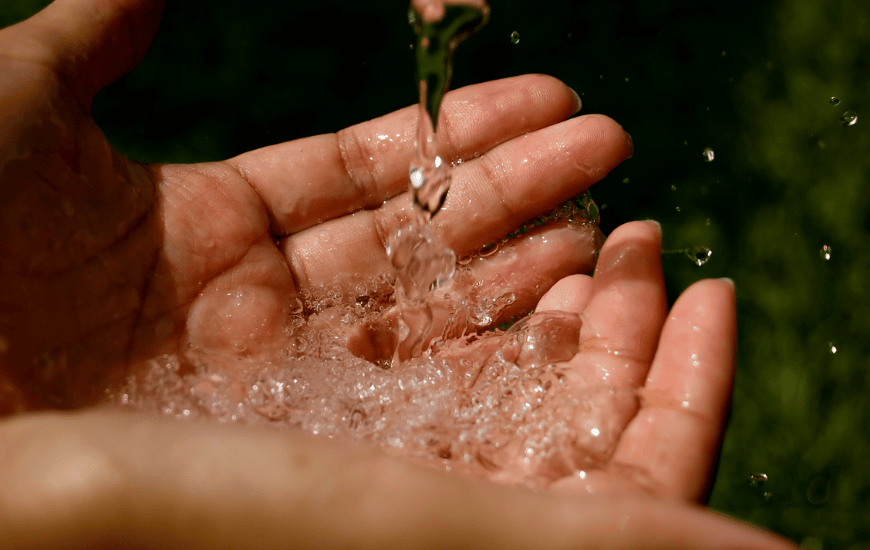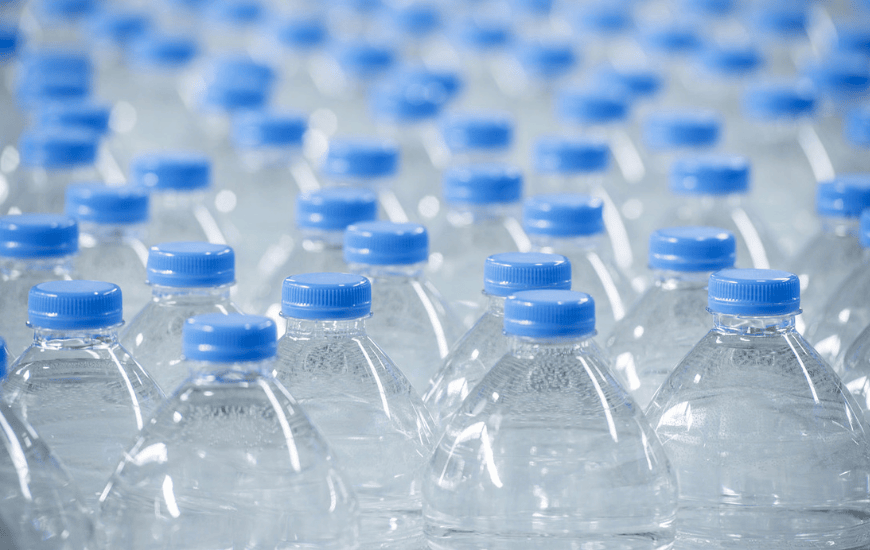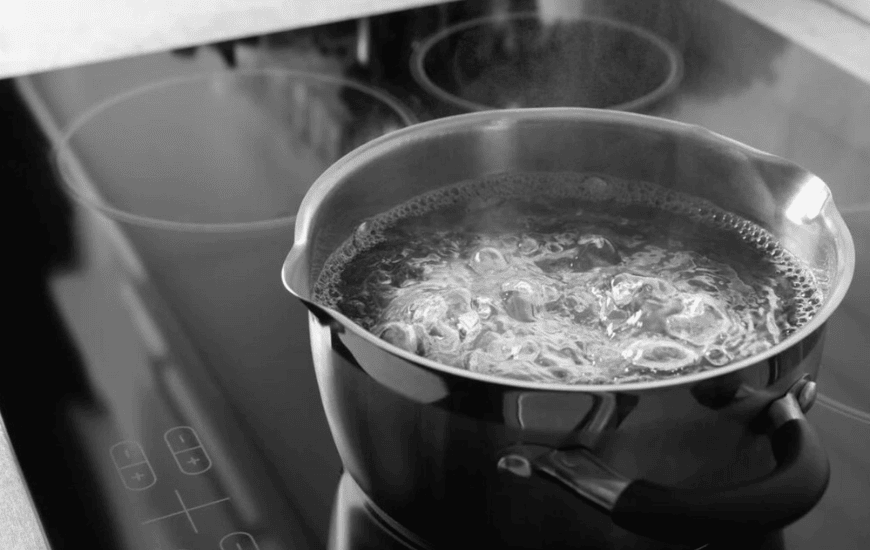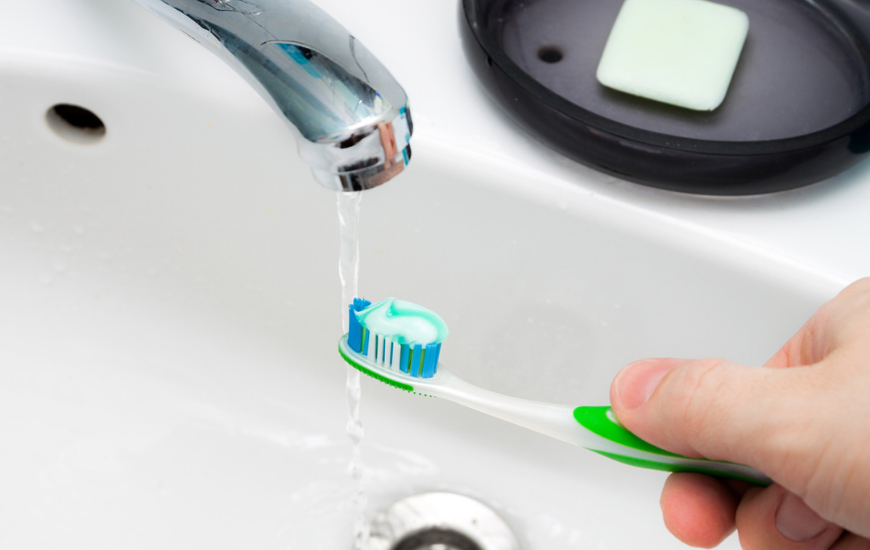Need Help?
Mar 16, 2023
By Mia
Health concerns are related to travel safety. The question of whether it is safe to drink tap water in Vietnam should be on your mind if you're planning a vacation in Vietnam. To learn about the security of using tap water in Vietnam, see Best Vietnam Tour Packages' guide about the country's water.
Before we can elaborate on your questions, we need to take a closer look at the water situation in Vietnam. Different water sources are provided to both urban and rural areas in our country.
Most rural regions lack access to piping infrastructure for water. In terms of washing, bathing, and cooking, the majority of the time, they utilize groundwater or even river water. There are much different water sources, including rainfall, wells, rivers, ponds, streams, lakes, and other natural bodies of water.
It's possible that there won't be enough water during the dry season, even in large cities because of bad management and operation. Because of poor filtering and treatment methods, Vietnam's water has a high chlorine concentration.
Despite this, many rural regions have upgraded their water systems to match the caliber of those in metropolitan areas.

People consume tap water, bottled water, and filtered water in metropolitan areas.
Tap water is most often consumed in our country. Hence, avoid using tap water if you require any drinking water when visiting Vietnam. We need to boil the water first so we can quench your thirst.
Bottled water is gaining popularity because it is convenient. They use it for eating, drinking, cleaning their faces, and brushing their teeth. Nonetheless, only reputable brands need to be trusted.
Many people purchase water purifiers today to purify tap water before using it. They rely on this strategy and believe it to be the best approach to lessen the risks to human health that drinking water presents.

To help you choose the safest and most convenient water during your trip, here’s a comparison of the main water sources in Vietnam:
| Water Type | Safety for Drinking | Common Use in Vietnam | Notes for TravelersNotes for Travelers | |
| Tap Water | Unsafe if unboiled, safe if boiled | Washing, cooking, bathing | Must boil before drinking; safe for cooking and washing. Risk of bacteria, chemicals, or corroded pipes. | |
| Bottled Water | Safe if from trusted brands | Drinking | Choose sealed bottles from trusted brands like La Vie, Aquafina, Dasani. You can use for drinking, brushing teeth, and cooking. | |
| RO-Filtered Water | Very safe | Drinking and cooking in households and hotels | Water is purified by Reverse Osmosis (RO) systems, removing bacteria and chemicals. Very safe for drinking and cooking. Ideal for long-term stays. |
• Always check the seal and brand when buying bottled water.
• If traveling to rural areas, carry a portable water filter or boiled tap water.
• For short stays, bottled water is the most practical option.
Water treatment facilities are few in Vietnam. Even if tap water is perfectly alright, it is not appropriate for human consumption. Hazardous chemicals, chemical residues, and certain bacteria in the water can all still be harmful. We are still unable to directly consume tap water due to corroded pipes. If you drink tap water to satiate your thirst, you can get diarrhea, digestive issues, or stomach aches.
Which drinks can you therefore safely consume in Vietnam? The most secure method is to boil tap water and let it cool before use. Becoming a common piece of furniture in large cities, RO water purifiers. Every source of water quickly becomes drinking water thanks to them. Among tourists, bottled water is the most popular option. Using these mineral water bottles offers a great deal of simplicity. Although 5-liter bottles are appropriate for picnics, 0.5 or 1.5-liter bottles could fit well in your bag.

If you accidentally drink unboiled tap water in Vietnam, don’t worry too much. Most visitors may only have mild symptoms, but it’s important to know the symptoms in advance to handle it properly.
• Stomach discomfort or cramps
• Mild diarrhea
• Nausea or a slight stomachache
These symptoms usually appear within a few hours and often disappear after a short time.
• If diarrhea lasts longer than 2–3 days
• If you feel very dehydrated (dizzy, dry mouth, dark urine)
• If you have a high fever or keep vomiting
In large cities such as Hanoi, Ho Chi Minh City, or Da Nang, you can easily go to international clinics and hospitals to be treated.
• You should bring along basic digestive medicine or probiotics when traveling in Vietnam.
• You should use oral rehydration salts (ORS) to avoid lost fluids.
• Pharmacies in Vietnam are quite popular, so you can easily buy digestive medicine without a prescription.
• You should always carry a reusable water bottle and fill it with boiled or bottled water to avoid unexpected health issues.
For more ideas on what to bring for your Vietnam journey, especially on a Halong Bay cruise, see our packing list for a Halong Bay cruise.
To avoid health issues when using water in your Vietnam tour, you can refer to some tips below:
• Always drink boiled water or bottled water: This is the safest option for both tourists and locals.
• Choose bottled water from trusted company: Check the seal and the expiration date carefully. Some popular brands in Vietnam are La Vie, Aquafina and Dasani.
• Be cautious with ice: Factory-made ice cubes with a hole in the middle are usually safer than the large block ice.
• Bring along a reusable water bottle: You can buy 1.5L or 5L bottles to refill, which is both economical and convenient.
• Use water filters or purification tablets if traveling to rural or remote areas.
Combining these tips not only keeps you safe but also helps you avoid unwanted digestive issues while traveling in Vietnam.
The answer is yes. Nonetheless, Best Vietnam Tour Packages do have a little bit of advice for you on the subject. There are no observable harmful consequences when tap water is used for daily tasks by the majority of Vietnamese people. If you are going a long distance, you should become used to tapping water. But, if you want to stay in Vietnam for a few days and want to be sure nothing strange happens, using bottled water to wash your teeth is a fantastic alternative. Modern water filtration systems are typically found in large hotels in cities like Hanoi and Ho Chi Minh City, making the water in Vietnam safer.

Once you know how to use water safely in Vietnam, you can explore many beautiful destinations without worrying. Here are some best places for travelers to visit in Vietnam:
Halong Bay:
This is a UNESCO World Heritage Site with thousands of limestone islands. A cruise on Halong Bay is a not-to-missed experience for every traveler when visiting Halong Bay. There are Halong Bay day cruises and Halong Bay overnight cruises. If you’re planning to go on a Halong Bay cruise but don’t know which Halong Bay cruise suits you best, don’t hesitate to contact Vietnam Escape Tours. We’ll help you find your best Halong Bay cruise make your trip in Halong Bay more unforgettable.
Ninh Binh:
Ninh Binh is often called “Halong Bay on land”, with a lot of karst landscapes, rivers and historical sites. Visiting here, you can take a sampan boat ride in Tam Coc, cycle through rice paddies, or visit the ancient capital of Hoa Lu. You can check out our Ninh Binh Tours for a well-planned trip to this beautiful destination
Sapa:
This is a mountainous town known for its terraced rice fields and the unique culture of ethnic minority groups. If you’d like to visit Sapa but don’t know how to get there, you can refer to our Sapa Tours or Sapa Tours from Hanoi. We’ll take care of transportation, accommodation, and activities so you can enjoy the trip without worries.
Hoi An:
Hoi An is a charming ancient town with colorful lanterns and diverse local cuisine. If you want to visit Hoi An, you can join our Day Tours from Hoi An, which include not only discovering the Ancient Town but also exploring nearby attractions.
Da Nang:
Da Nang is a vibrant coastal city, home to My Khe Beach, Son Tra Peninsula, and the iconic Dragon Bridge. Da Nang is one of the most favorite destinations for both local and international travelers, and you can explore it easily with our Da Nang City Half-day Tour or From Ho Chi Minh to Da Nang 5-day Tour.
Ho Chi Minh City (Saigon):
Ho Chi Minh city is a bustling metropolis, Vietnam’s economic and cultural hub, filled with historic landmarks. You can refer to our Ho Chi Minh Tours or Saigon Tours for your unforgettable trip in Ho Chi Minh city.
The destinations above are just some of the most popular places in Vietnam. There are still many other fascinating attractions waiting for you to discover. You can check out our Vietnam Tours or Vietnam Package Tours for a more convenient and safe journey in Vietnam.
Tap water in Vietnam is not recommended for direct drinking, but you can safely use boiled tap water, bottled water, or filtered water. If you know some simple Vietnam water safety tips, you can avoid health issues and enjoy your trip without worries in Vietnam.
If you are planning to visit destination like Sapa and want to know more about the tap water situation there, feel free to contact Vietnam Escape Tours. We are happy to provide advice to make your journey more convenient and enjoyable.
1. Is it safe to drink tap water in Hanoi and Ho Chi Minh city?
No. Tap water in Hanoi and Ho Chi Minh city is not safe to drink directly. Although the water supply in urban areas is treated, it may still contain bacteria, chemicals, or heavy metals. Travelers should always boil tap water or use bottled water and filtered water instead.
2. Can I use tap water for cooking?
Yes. Tap water can be used for cooking if it is boiled properly. Boiling kills bacteria and makes the water safe for preparing food, but it does not remove chemicals or heavy metals.
3. What should I do if I accidentally drink tap water in Vietnam?
Don’t worry too much. Some travelers might experience mild stomach upset, nausea, or diarrhea. Usually, these symptoms disappear quickly. If discomfort lasts more than 2–3 days, or you have fever and dehydration, you should visit a doctor.
4. What is the safest option for drinking water in Vietnam?
The safest choice is drinking bottled water. It’s widely available and affordable in supermarkets, convenience stores, hotels, and restaurants. Trusted bottled water brands in Vietnam include La Vie, Aquafina, and Dasani.
5. How much does bottled water cost in Vietnam?
It’s very cheap. A 500ml bottle costs 5,000–10,000 VND (0.2–0.4 USD), and a 1.5L bottle is 10,000–15,000 VND (0.4–0.6 USD) (Price in 2025).
6. Is ice safe to consume in Vietnam?
It depends. Factory-made ice cubes (with a small hole in the middle) are generally safe, especially in restaurants and cafes. You should avoid large block ice from street vendors or unknown sources.
7. Do hotels in Vietnam provide free drinking water?
Yes. Most hotels give guests 1–2 free bottles of water per day. Some hotels also provide hot and cold water dispensers where guests can refill their bottles.
8. Are water filters in hotels reliable?
Many modern hotels in big cities use RO filtration systems, making water safer. However, for short-term visitors, bottled water is still the safest option.
9. Should I carry a reusable water bottle in Vietnam?
Yes. It’s convenient, eco-friendly, and you can refill it at hotels or you can buy a 1.5L or 5L bottle to refill your reusable water bottle instead of buying multiple plastic bottles.
10. Is boiling enough to make tap water safe?
Boiling kills bacteria and parasites, but it does not remove chemicals or heavy metals. For long-term safety, you can drink water using a combination of boiled filtered water or bottled water.